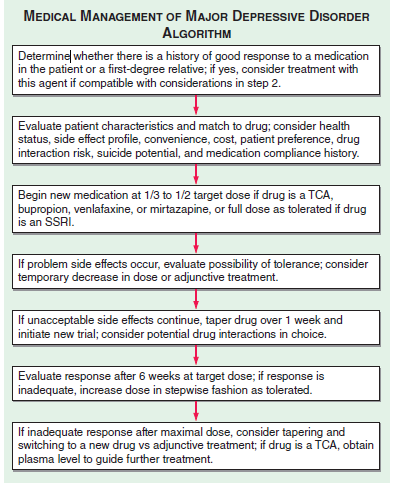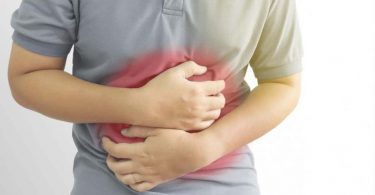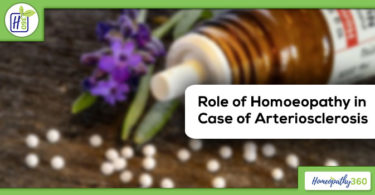Authors:
Dr Ashok Yadav, HOD Dept. Of Practice of Medicine (Hom.) Dr. M.P.K. Homoeopathic Medical College, Hospital and Research Center. Homoeopathy University, Jaipur.
Dr Virendra Chauhan , Prof. Dept. Of Practice of Medicine (Hom.) Dr. M.P.K. Homoeopathic Medical College, Hospital and Research Center. Homoeopathy University, Jaipur.
Dr Bhupendra Arya , MD Scholar, Department of Practice of Medicine (Hom.) , Dr. M.P.K Homoeopathic Medical College, a constituent college of Homoeopathy University, Jaipur.
Abstract: Depressive symptomatology may reflect the psychological stress of coping with the disease, may be caused by the disease process itself or by the medications used to treat it, or may simply coexist in time with the medical diagnosis Depressive symptomatology may reflect the psychological stress of coping with the disease, may be caused by the disease process itself or by the medications used to treat it, or may simply coexist in time with the medical diagnosis.1This article provide information about depression along with homoeopathy medicine
Keywords: Depression, Homoeopathy ,
Introduction : Major depressive disorder has a prevalence of 5% in the general population and approximately 10–20% in chronically ill medical outpatients. It is a major cause of disability and suicide. If comorbid with a medical condition, depression magnifies disability, diminishes adherence to medical treatment and rehabilitation, and may even shorten life expectancy2
CRITERIA FOR A MAJOR DEPRESSIVE EPISODE 1
- Five (or more) of the following symptoms have been present during the same 2-week period and represent a change from previous functioning; at least one of the symptoms is either (1) depressed mood or (2) loss of interest or pleasure
- Depressed mood most of the day, nearly every day, as indicated by either subjective report (e.g., feels sad, empty, hopeless) or observation made by others (e.g., appears tearful).
- Markedly diminished interest or pleasure in all, or almost all, activities most of the day, nearly every day (as indicated by either subjective account or observation).
- Significant weight loss when not dieting or weight gain (e.g., a change of >5% of body weight in a month), or decrease or increase in appetite nearly every day.
- Insomnia or hypersomnia nearly every day.
- Psychomotor agitation or retardation nearly every day (observable by others, not merely subjective feelings of restlessness or being slowed down).
- Fatigue or loss of energy nearly every day.
- Feelings of worthlessness or excessive or inappropriate guilt (which may be delusional) nearly every day (not merely self-reproach or guilt about being sick).
- Diminished ability to think or concentrate, or indecisiveness, nearly every day (either by subjective account or as observed by others).
- Recurrent thoughts of death (not just fear of dying), recurrent suicidal ideation without a specific plan, or a suicide attempt or a specific plan for committing suicide
- The symptoms cause clinically significant distress or impairment in social, occupational, or other important areas of functioning
- The episode is not attributable to the physiologic effects of a substance or to another medical condition
- The occurrence of the major depressive episode is not better explained by seasonal affective disorder, schizophrenia, schizophreniform disorder, delusional disorder, or other specified and unspecified schizophrenia spectrum and other psychotic disorders.
- There has never been a manic episode or a hypomanic episode
MANAGEMENT : 1

HOMOEOPATHIC TREATMENT3,4
- Arsenicum album: Anxious, insecure, and perfectionistic people who need this remedy may set high standards for themselves and others and become depressed if their expectations are not met. Worry about material security sometimes borders on despair. When feeling ill, these people can be demanding and dependent, even suspicious of others, fearing their condition could be serious.
- Aurum metallicum: This remedy can be helpful to serious people, strongly focused on work and achievement, who become depressed if they feel they have failed in some way. Discouragement, self-reproach, humiliation, and anger can lead to feelings of emptiness and worthlessness. The person may feel worse at night, with nightmares or insomnia.
- Calcarea carbonica: A dependable, industrious person who becomes overwhelmed from too much worry, work, or physical illness may benefit from this remedy. Anxiety, fatigue, confusion, discouragement, self-pity, and a dread of disaster may develop. A person who needs this remedy often feels chilly and sluggish and easily tires on exertion.
- Causticum: A person who feels depressed because of grief and loss (either recent or over time) may benefit from this remedy. Frequent crying or a feeling of mental dullness and forgetfulness (with anxious checking to see if the door is locked, if the stove is off, etc.) are other indications. People who need this remedy are often deeply sympathetic toward others and, having a strong sense of justice, can be deeply discouraged or angry about the world.
- Cimicifuga: A person who needs this remedy can be energetic and talkative when feeling well, but upset and gloomy when depressed—with exaggerated fears (of insanity, of being attacked, of disaster). Painful menstrual periods and headaches that involve the neck are often seen when this remedy is needed.
- Ignatia amara: Sensitive people who suffer grief or disappointment and try to keep the hurt inside may benefit from this remedy. Wanting not to cry or appear too vulnerable to others, they may seem guarded, defensive, and moody. They may also burst out laughing, or into tears, for no apparent reason. A feeling of a lump in the throat and heaviness in the chest with frequent sighing or yawning are strong indications for Ignatia. Insomnia (or excessive sleeping), headaches, and cramping pains in the abdomen and back are also often seen.
- Kali phosphoricum: If a person feels depressed after working too hard, being physically ill, or going through prolonged emotional stress or excitement, this remedy can be helpful. Exhausted, nervous, and jumpy, they may have difficulty working or concentrating—and become discouraged and lose confidence. Headaches from mental effort, easy perspiration, sensitivity to cold, anemia, insomnia, and indigestion are often seen when this remedy is needed.
- Natrum carbonicum: Individuals who need this remedy are usually mild, gentle, and selfless—making an effort to be cheerful and helpful, and avoiding conflict whenever possible. After being hurt or disappointed, they can become depressed, but keep their feelings to themselves. Even when feeling lonely, they withdraw to rest or listen to sad music, which can isolate them even more. Nervous and physically sensitive (to sun, to weather changes, and to many foods, especially milk), they may also get depressed when feeling weak or ill.
- Natrum muriaticum: People who need this remedy seem reserved, responsible, and private—yet have strong inner feelings (grief, romantic attachment, anger, or fear of misfortune) that they rarely show. Even though they want other people to feel for them, they can act affronted or angry if someone tries to console them, and need to be alone to cry. Anxiety, brooding about past grievances, migraines, back pain, and insomnia can also be experienced when the person is depressed. A craving for salt and tiredness from sun exposure are other indications for this remedy.
- Pulsatilla: People who needs this remedy have a childlike softness and sensitivity—and can also be whiny, jealous, and moody. When depressed, they are sad and tearful, wanting a lot of attention and comforting. Crying, fresh air, and gentle exercise usually improve their mood. Getting too warm or being in a stuffy room can increase anxiety. Depression around the time of hormonal changes (puberty, menstrual periods, or menopause) can often be helped with Pulsatilla.
- Sepia: People who feel weary, irritable, and indifferent to family members, and worn out by the demands of everyday life may respond to this remedy. They want to be left alone and may respond in an angry or cutting way if anyone bothers them. They often feel better from crying, but would rather have others keep their distance and not try to console them or cheer them up. Menstrual problems, a sagging feeling in internal organs, sluggish digestion, and improvement from vigorous exercise are other indications for this remedy.
- Staphysagria: Quiet, sensitive, emotional people who have difficulty standing up for themselves may benefit from this remedy. Hurt feelings, shame, resentment, and suppressed emotions can lead them to depression. If under too much pressure, they can sometimes lose their natural inhibition and fly into rages or throw things. A person who needs this remedy may also have insomnia (feeling sleepy all day, but unable to sleep at night), toothaches, headaches, stomachaches, or bladder infections that are stress-related.
References:
- Kasper, D. L., Fauci, A. S., Hauser, S. L., Longo, D. L. 1., Jameson, J. L., & Loscalzo, J. (2015). Harrison’s principles of internal medicine (19th edition.). New York: McGraw Hill Education. principles of internal medicine. 18th ed. New York: McGraw Hill, HealthProfessions Division; 2012. p. 2382.
- Davidson Stanley. Principles & Practice of Medicine. 22nd ed. Philadelphia: Elsevier; 2014.
- Boericke William. New Manual Of Homoeopathic Materia Medica, New Delhi: B. Jain Publishers(P) Ltd; 2011
- Allen HC. Allen‘s Keynotes Rearranged and Classified Leading Remedies of the Materia Medica and Bowel Nosodes. New Delhi: B. Jain Publishers(P)Ltd; 2005.





